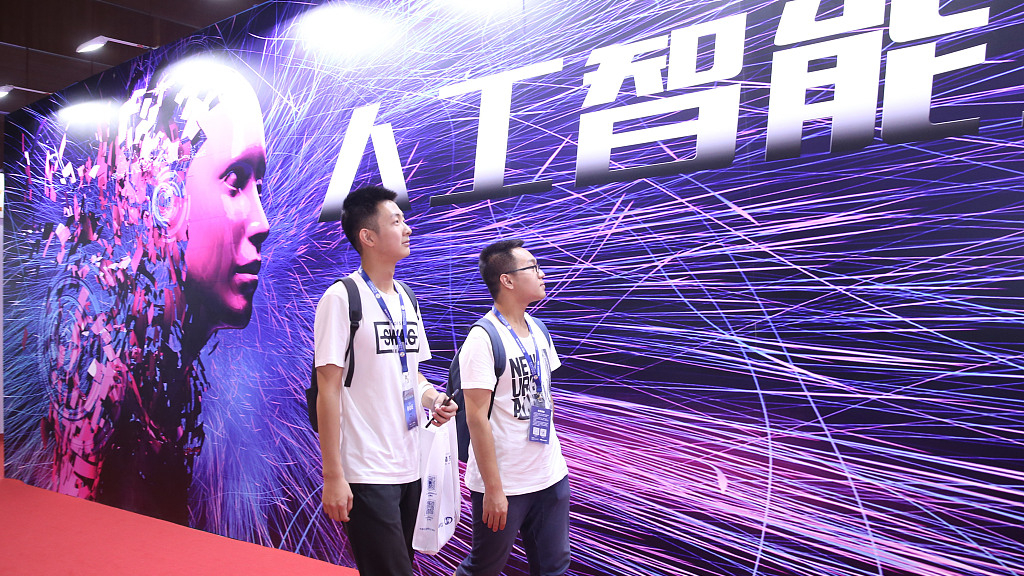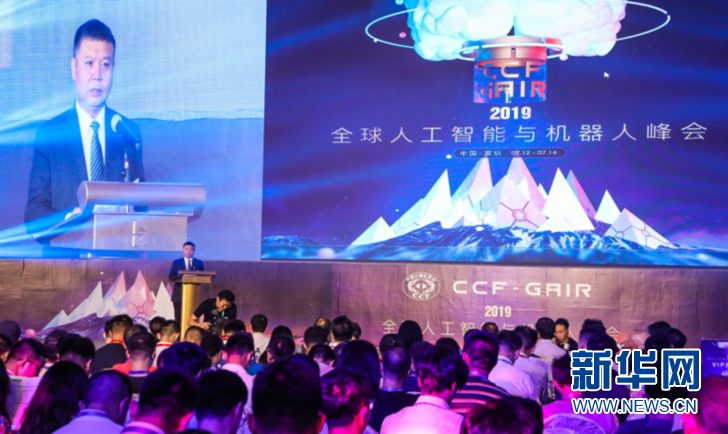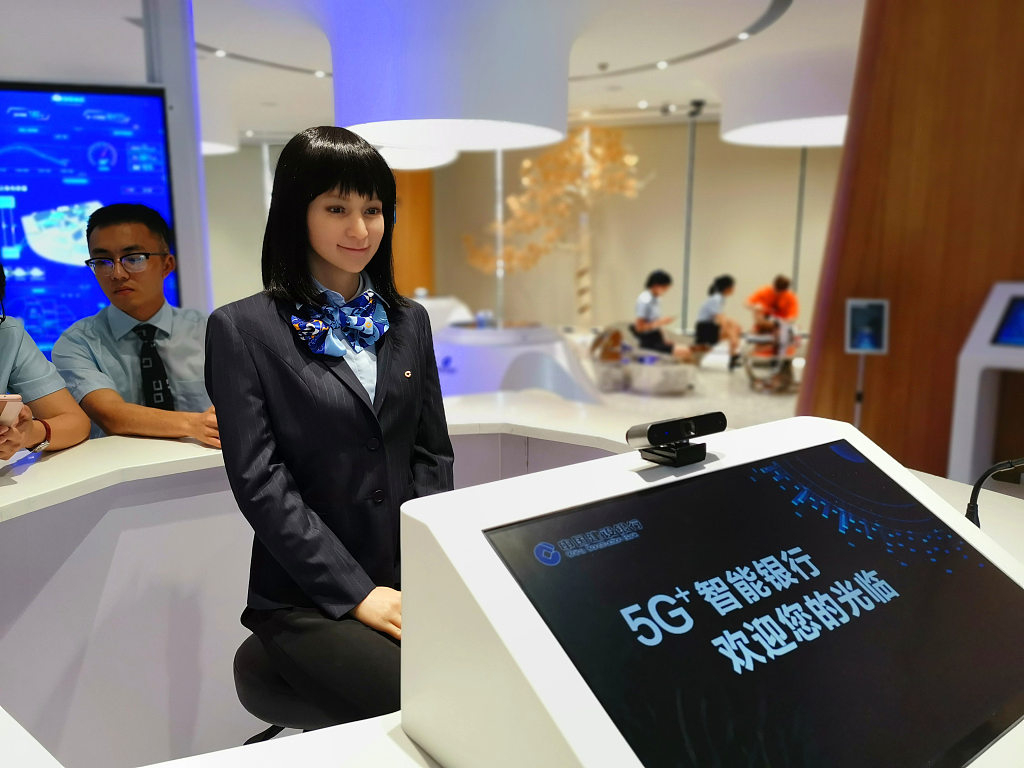

Editor's note: Liang Zheng is a professor of School of Public Policy and Management, Tsinghua University. The article reflects the expert's opinions, and not necessarily those of CGTN.
The Global Artificial Intelligence and Robotics Summit 2019 took place in China's southeast city Shenzhen from July 12 to 14. The event is China's top exhibition and communications conference for academia, industry and ventures of intelligent robots, and is to present the most powerful platform for cross-domain communications and co-operations of Chinese AI.
The strengths of China's AI
Artificial intelligence (AI) is widely believed to be the cornerstone of the fourth industrial revolution. Contrary to past industrial races, China already has a head start in AI development. It is indeed a race between the "two giants" - China and the U.S.

Wang Lixin, the vice mayor of Shenzhen, speaks during the Global Artificial Intelligence and Robotics Summit in Shenzhen, Guangdong Province, China, July 12, 2019. /Xinhua Photo
According to a report on China’s developments in AI in 2018 by the China Institute for Science and Technology Policy at Tsinghua University, China is the leading country in terms of AI research publications and patents, and the number of AI talents and enterprises is only second to the U.S.
In some specific fields like computer vision and speech recognition, China has been in a leading position in both technology development and market applications. At the city level, Beijing has lots of world-renowned AI specialists, AI enterprises, AI research institutes, and venture capital.
China’s AI development already enjoys a very favorable environment not only as a result of a vast application market and rich data but also due to policy support from the central and local governments.
The weaknesses of China's AI
However, as far as the quality of development is concerned, China's AI development is far from being optimistic. Current AI is mostly based on machine learning, in which computing power, algorithms, and data are the key ingredients. China's strengths are primarily demonstrated in AI applications, but it is still vulnerable on the front of the core technologies such as chips and algorithms.
The U.S. sanctions against ZTE and Huawei have clearly illustrated China's bottlenecks in hardware. Furthermore, although China's AI talents are next to the U.S. in quantity, if only top-tier talents are measured, there is still a considerable gap with the U.S., the UK, and Germany.
What's worse, China's lax AI governance regime may have a negative social impact, especially in regards to privacy. As renowned AI expert and venture capitalist from China's Taiwan Kai-Fu Lee said, "in the age of AI, China is the OPEC of data." China's enormous online database aids the rapid development of AI, but at the same time, triggers concerns of personal privacy. In response, China's government and legislative entities are now putting a lot of effort into drafting regulations on data governance, privacy protection, as well as ethical rules on AI development and applications.
International collaboration crucial
China has a long journey ahead for becoming an AI superpower. The country must strengthen basic research, reform its education system, cultivate and attract top-tier talents, and make breakthroughs in basic core areas of AI to put the industry development on a solid foundation.
The era opens up opportunities for China’s AI development. The approaching of 5G, for example, will not only provide a new infrastructure of AI technology development but also stimulate broader and deeper AI application into various scenarios such as smart cities, intelligent manufacturing, autonomous driving, and healthcare, which in turn could drive technological innovation. China should take advantage of its huge market and rich application scenarios to attract top AI talents and cutting-edge companies.

A robot receptionist at a branch of the China Construction Bank in Beijing, China, July 14, 2019. /VCG Photo
China’s AI policy research, which has so far tilted towards industry development and industry progress, should seek to balance public welfare and AI ethics. AI technology development should be accompanied by social foresight, supporting policymaking that steers AI development in anticipation of the technology roadmap and potential social effects. Meanwhile, it is essential to create mechanisms of public engagement in policymaking so that policies reflect and incorporate input from all sectors of society.
Finally, international collaboration is increasingly necessary not only in AI technology development but also in AI governance. In spite of the adverse international political atmosphere, science and technology innovation is becoming more and more interdependent globally in terms of academic exchanges, research collaboration, and labor division. However, AI will cause several social problems as well, such as unemployment and ethical dilemmas.
It is imperative for all countries, especially the U.S. and China, to establish sustainable collaboration in areas such as how to reform their education systems, develop new frameworks around privacy, and form justified ethical rules. As the first mover in large scale applications of AI, China should get actively involved in the global governance of AI and play a unique role in AI technology development, risk prevention and formulation of ethical AI norms to advance AI development for a promising future of human society.
(If you want to contribute and have specific expertise, please contact us at opinions@cgtn.com.)

Copyright © 2018 CGTN. Beijing ICP prepared NO.16065310-3
Copyright © 2018 CGTN. Beijing ICP prepared NO.16065310-3